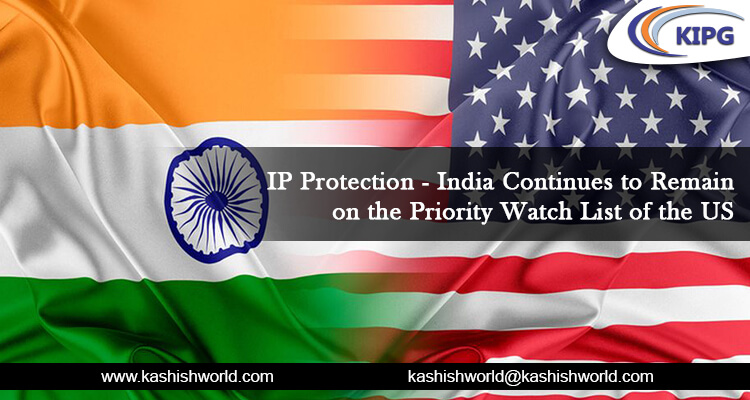
As per the Annual Special 301 Report of the United States Trade Representative (USTR) released quite recently, India continues to remain on the Priority Watch List corresponding to the lack of adequate management, protection, and enforcement of the Intellectual Property Rights (IPRs).
By using the language that the report has used previously as well, it said that India is still one of the most challenging economies across the globe when it comes to Intellectual Property Protection and Enforcement. Along with India, China, Argentina, Algeria, Chile, Russia, Indonesia, Venezuela, Ukraine, and Saudi Arabia are also there on the Priority Watch List.
The report said that while India has indeed made “meaningful progress” for enhancing IP protection and enforcement in some of its areas over the last year, it has still not resolved the recent and long-standing challenges, and has instead created a few new ones. However, the same assessment was there in the report issued last year as well.
These long-standing challenges and concerns are corresponding to the innovators being able to maintain and enforce their patents, specifically in the pharmaceutical industry, an outdated framework of trade secrets, and Copyright Laws not incentivizing the creation and commercialization of innovative works.
The report has stated that India restricts the transparency of information given on the pharmaceutical manufacturing licenses issued by the states and continues to make use of the restrictive patentability criteria to reject the pharmaceutical patents. Additionally, according to the Annual Special 301 Report, India has still not established a robust system for protection against unfair commercial use and unauthorized disclosure of data generated to get the marketing approval for pharmaceuticals and some specific agricultural chemical products.
The report has highlighted the high customs duties on Information and Communications Technology (ICT) and medical devices in India. These two categories were in the list of persistent challenges in trade talks between India and the US last year as well.
The report has mentioned that despite India’s continuous justifications of limiting IP protection as a way to encourage access to technologies, the nation maintains exceedingly high customs duties directed to IP-intensive products, including pharmaceuticals, solar energy equipment, medical devices, ICT products, and capital goods.
While talking about online IP enforcement in India, the report stated that the same has improved, but the progress is undercut by a lot of factors such as lack of familiarity with investigative techniques, weak enforcement by courts and the police, and no centralized agency for IP enforcement. The USTR also made a point of the fact that in 2019, India was counted among the top five economies of the world for fake goods by the Organization of Economic Development and Cooperation (OECD).
The report has specified that trademark counterfeiting levels in India are problematic, and there are excessive delays in getting a trademark registered due to a lack of quality in the examination process. Consequently, the US has urged India to join the Singapore Treaty on the Law of Trademarks, which harmonizes the process of Trademark Registration.

